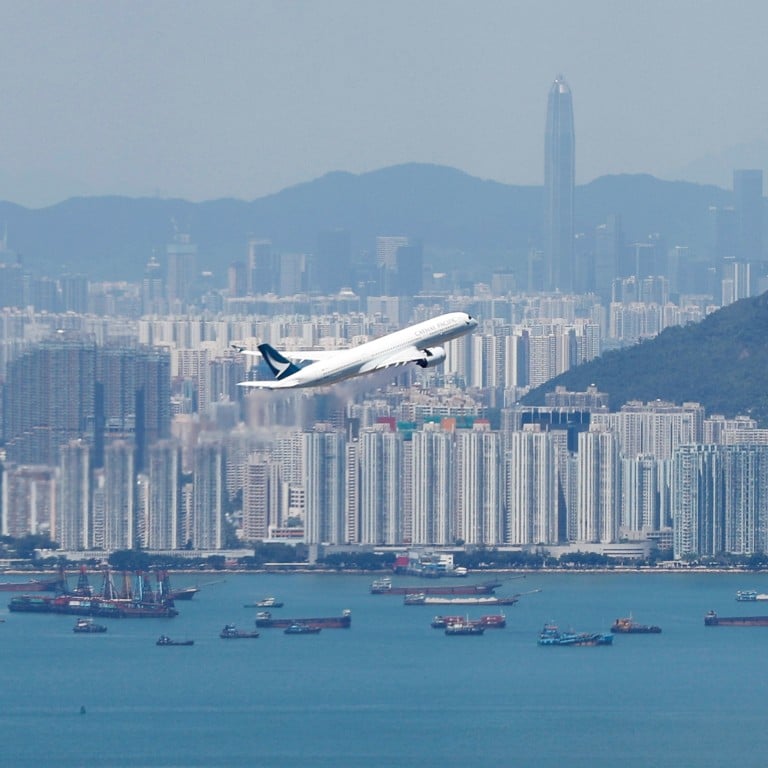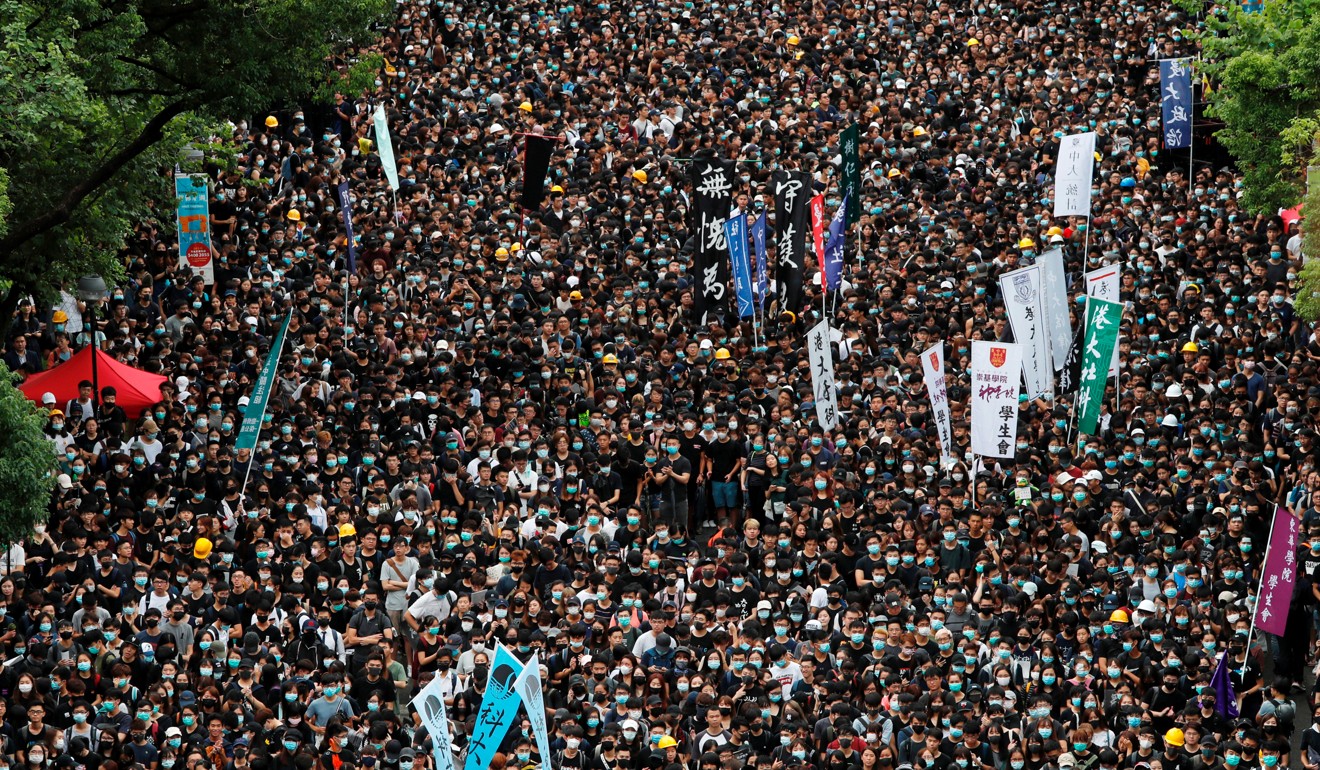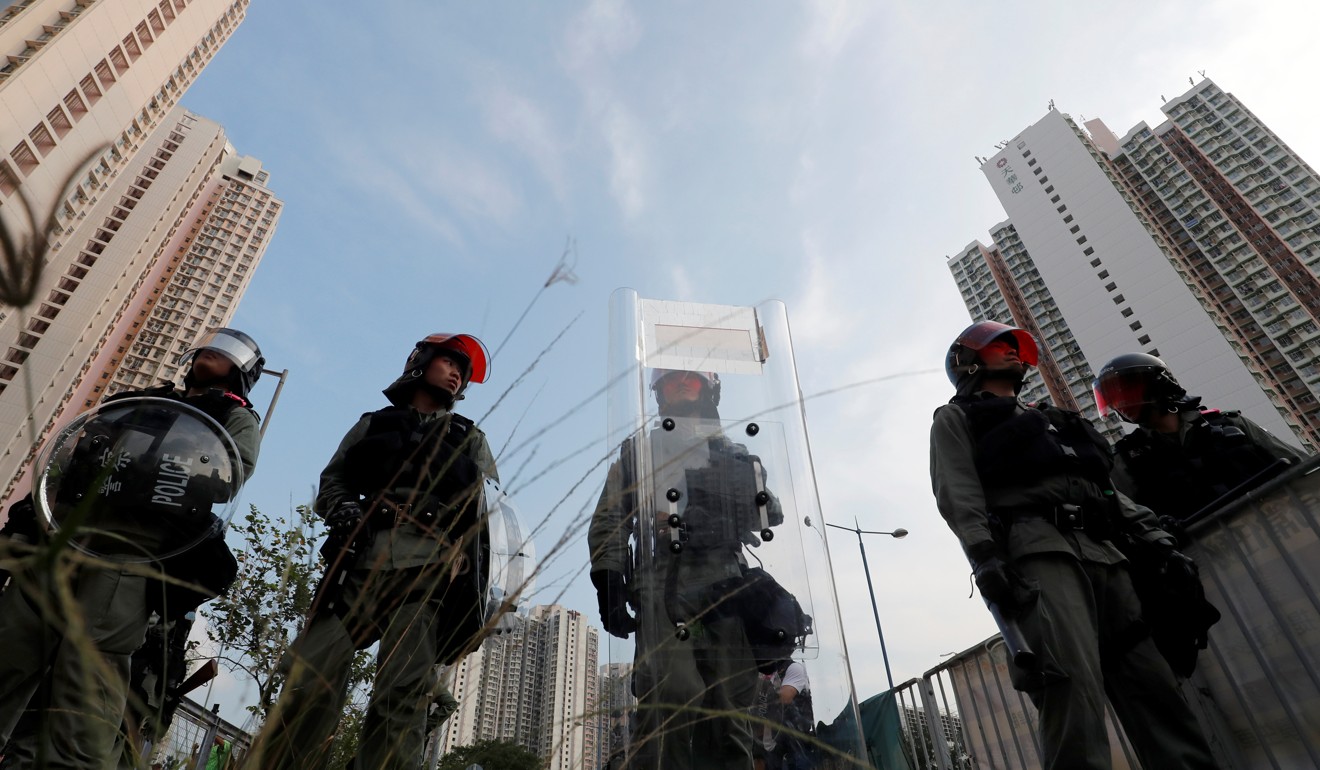
How bad is it in Hong Kong? Depends where you are when asked, Singapore business survey finds
- A survey of 120 American companies in Singapore found that those with a presence in Hong Kong are less concerned about the ongoing protests than those not operating in the city
- But a majority of those surveyed said the protests may affect future investment decisions
The flash survey, conducted from August 21 to 29, covered 120 American companies in Singapore, including 77 with offices in Hong Kong.
More than seven in 10 of those with operations in Hong Kong said they had no plans to move capital out or relocate their business functions.
But three out of four of them said the anti-government protests roiling Hong Kong would affect their future investment decisions.
That was lower than almost nine out of 10 of those without offices in the city who said the protests would affect their future decisions.
Economists in Singapore found the differences in perception unsurprising.
Chua Hak Bin, a senior economist with Maybank Kim Eng, said companies with a presence in Hong Kong would likely not relocate as they had already sunk roots and invested in Hong Kong’s future.
“Relocation will be far more disruptive and costly than for those firms without a presence and only deciding on a new Hong Kong office,” he said.
Song Seng Wun, an economist at CIMB Private Banking, said the survey results suggested that companies were looking at the long term.
Have Singaporeans misunderstood the nature of Hong Kong protests?
For example, if a company pulled out of Hong Kong now, it might face difficulties bouncing back into the market once the situation returned to normal.
Song said companies would react differently as the protests began to impact more day-to-day activities.

Song noted that media reports of the protests in Hong Kong also contributed to the perception that the situation is worse than it actually is.
The AmCham survey was conducted online with senior leaders of the chamber’s member companies, but economists doubted if its findings were representative.
Song said the answers given by respondents in such surveys tend to be “dependent on the circumstances when the interviews are conducted”.
Hong Kong ‘can solve socio-economic problems like Singapore did’
“When it happens to be a quiet day, you will probably say there is no problem,” he said. “But if you are doing a survey when barricades are burning, you’d probably give a completely different set of responses.”
Expatriates interviewed in Hong Kong felt media coverage has created a perception that the situation was dire.

“I do feel that for those at home, the somewhat shocking scenes on the news make them think this is happening on a large scale,” he said. “My company had two foreign recruits drop out though due to the protests. I guess there will always be risk-averse people and more tolerant people.”
Additional reporting by Crystal Tai

